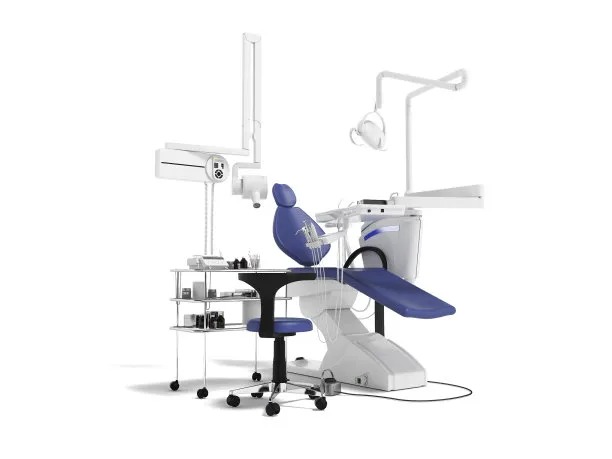Summary: Dental fillings are essential for restoring teeth affected by decay and damage. However, before undergoing this common dental procedure, various tips and precautions can optimize your oral health. This article discusses four critical aspects: understanding dental fillings, selecting the right dentist, preparing for the procedure, and post-fillings care. By following these essential guidelines, patients can ensure a smoother experience and better long-term outcomes for their dental health.
1. Understanding Dental Fillings and Their Types

Dental fillings serve as a remedy for cavities or damaged teeth, providing a solution that restores tooth structure and function. There are various types of materials used for fillings, including amalgam, composite resin, glass ionomer, and gold. Each material has distinct characteristics, such as durability and aesthetic appeal, making it crucial for patients to understand their options.
Amalgam fillings, made from a mixture of metals, are known for their strength and are typically used in back teeth due to their durability. In contrast, composite resin fillers are favored for their tooth-like appearance, making them ideal for visible areas. Glass ionomer, while less durable, releases fluoride and is beneficial for patients prone to decay. Understanding the differences allows patients to make informed choices based on their needs.
Ultimately, being well-informed about the types of fillings can lead to a more satisfactory dental experience, ensuring that patients select the option that not only addresses their dental issues but also aligns with their aesthetic preferences.
2. Selecting the Right Dentist for Your Needs
The importance of choosing a qualified dentist cannot be understated when considering dental fillings. Patients should seek a professional with experience in restorative dentistry who can efficiently perform the procedure. Researching potential dentists through recommendations, online reviews, and credentials is an essential step before committing to treatment.
After identifying potential candidates, scheduling a consultation can provide insight into a dentists expertise and approach to patient care. During this visit, patients can ask questions about techniques, materials used, and any concerns they may have about the procedure. A dentist who communicates openly and patiently will likely ensure a more comfortable experience.
Additionally, considering factors like the dental office鈥檚 atmosphere, staff professionalism, and technology can help in selecting a dentist who meets your specific needs. The right professional can not only complete dental fillings but also guide you toward optimal oral health in the long term.
3. Preparing for the Dental Filling Procedure
Preparation for dental fillings plays a crucial role in ensuring a smooth and effective procedure. Patients should maintain regular dental check-ups, allowing for earlier intervention if cavities or damage are detected. By addressing dental issues promptly, the extent of treatment and discomfort can be minimized.
On the day of the appointment, patients should discuss their concerns with the dentist, including any anxiety related to the procedure. Anxiety management techniques, such as relaxation exercises or sedation options, can be explored with the dentist to enhance comfort. Being informed about what to expect during the procedure can also alleviate fears.
Moreover, fasting before the procedure, especially if sedative options are being considered, is crucial. Following any pre-procedure guidelines provided by the dentist ensures the procedure goes smoothly, with fewer complications or discomfort during and after the filling process.
4. Post-Fillings Care for Optimal Recovery
Post-procedure care is equally important to achieve the best outcomes after receiving dental fillings. Patients should be mindful of temporary sensations, such as numbness or sensitivity in the filled tooth, which may persist for a short period. Avoiding very hot or cold foods is advised until full sensation returns to prevent discomfort.
After dental fillings, maintaining good oral hygiene is essential. This includes brushing and flossing around the filling site to keep the area clean and free from plaque accumulation. Regular dental visits for check-ups can help monitor the health of the filling and surrounding teeth over time.
If any discomfort, sensitivity, or other unusual symptoms occur following the filling, patients should contact their dentist promptly for advice. Taking proactive steps and addressing any issues early aids in the long-term success of the filling and overall oral health.
Summary:
Before receiving dental fillings, understanding the variety of options available, ensuring the right dentist is selected, preparing adequately for the procedure, and following up with the appropriate aftercare can significantly affect one鈥檚 oral health. This holistic approach not only helps in the effective restoration of teeth but also fosters confidence in managing one鈥檚 dental care journey.
This article is compiled by Vickong Dental and the content is for reference only.
Vickong Dental
Vickong Dental is a large medical group established in Hong Kong in 2008 by professors from well-known medical universities in Guangdong and Hong Kong, as well as medical doctors from key national '985' universities (including Master's supervisors and senior professors). The chain of branches brings together expert dentists with PhDs and Master's degrees from Hong Kong and Mainland China, committed to providing high-quality dental treatment.
"Vickong Dental Practices the University Motto of 'Healing and Serving Society,' with a Stable Operation for Sixteen Years. It Has Been honored with Hong Kong Enterprise Leaders's Choice,' and is a Global Trusted Implant Center for the Nobel Implant System. Recommended by Hong Kong Metro Broadcast and Guangdong Television, it Serves Customers from Over Thirty Countries and Regions, Gaining the Trust and Favor of Citizens from the Guangdong-Hong Kong-Macau Greater Bay Area and Surrounding Cities.

Thousands of customers' unanimous praise
The most recognized and highly recommended dental service by customers in the Guangdong-Hong Kong-Macau Greater Bay Area
We Ensure You Receive Detailed Care and Attention Here
Hong Kong standards, Shenzhen prices, Your Trusted English-speaking dentists

Vickong Dental Medical-Grade Instrument Disinfection Process
Vickong Dental Medical-Grade Instrument Disinfection Process

Vickong Dental Chain: A Warm and Comfortable Environment for Treatment






Appointment Hours

Q&A
Why choose Vickong Dental?
Vickong Dental practices the university motto 「Medicine to Benefit Society」, with each branch bringing together highly qualified dentists with doctoral and master’s degrees from Hong Kong and the Mainland, and has maintained seventeen years of steady operation。Recipient of 「2024 Hong Kong Enterprise Leaders Brand」, 「2025 Hong Kong Enterprise Leaders Brand」, a Nobel Biocare Global Trusted Implant Center, and a brand recommended by Metro Radio Hong Kong and Guangdong TV。
To date, we have served customers from more than thirty countries and regions,earning exceptionally high word-of-mouth recognition and trusted recommendations from residents across the Guangdong-Hong Kong-Macao Greater Bay Area and surrounding cities
We have eight major branches in Zhuhai、Shenzhen,and a consultation and service assurance center in Hong Kong,so you can book a free consultation at any time for any questions,which is very reassuring.
If I do not accept the quotation after the CT scan, will I be charged??
No! As long as the actual treatment has not started, you will not be charged any fees.
Will there be any additional charges during the treatment process?
No, there won’t be any additional charges. Before treatment begins, we will clearly explain the treatment plan and its corresponding fees. Only after the patient agrees and signs the consent form will we proceed with the dental service.
Can I pay in Hong Kong dollars?
Yes. Vickong Dental accepts payment in Hong Kong dollars. The amount will be converted based on the exchange rate of the day, and the applicable rate will be clearly communicated to you in advance.
Can I reschedule my appointment at any time?
Yes. Please contact us via **WeChat** or **WhatsApp** as early as possible, providing your original appointment time and details, along with your preferred new date and time slot for rescheduling.













